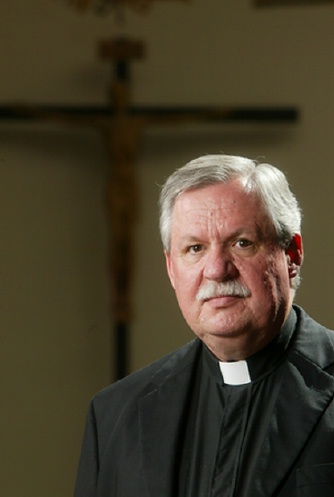Is There Anything Out There to Believe In?
If “religion” is the mode by which humans engage God and so begin to know something of the divine life, of moral human life, of human happiness, and so on, then the big question is, Is there someone out there with whom to engage?
A philosophical camp, called anti-realism, thinks that God’s existence is located in a community’s belief that God exists. Belief creates existence. Believers believe God exists, therefore God exists, because in the hearts and minds of believers God exists.
Conversely, Roman Catholicism believes that God actually exists as the Divine Creator, the Triune God, the Mysterium Tremendum et Fascinans. God is really “out there” and, perhaps more importantly, God is “in here,” in believers’ hearts, in the concrete reality of our lives, and in the midst of the community gathered in prayer. The Catholic teachings on the Incarnation, the Real Presence of Jesus in the Eucharist, the healing and transformative power of the sacraments, the authority of the ministerial priesthood, and the royal priesthood of all believers are grounded in the reality of God’s existence. And these teachings become a reality in time and space through God’s actual authority, power, and activity in Creation.
Moreover, the great saints go before us as exemplars to show that we can experience God in our lives. St Ignatius of Loyola records in his Autobiography that he came to know the reality of God through experiences of consolation during his convalescence at Loyola and in the subsequent months just outside
This revelation is Trinitarian: Christ present in the power of the Holy Spirit revealing the Father as love. This revelation gives rise to consolation in daily life and leads us to the fuller and more abundant life that only God – a God who really exists “out there” and “in here” – can give, a God of the living and the dead.



2 Comments:
Thanks for showing me the way to your blog... there seems like lots to reflect on here.
I wonder why the Church has not officially made the Trinity a dogma? (ex Cathedra) Some Christian churches do not believe in the Trinity. Your paper was excellent.
Post a Comment
<< Home